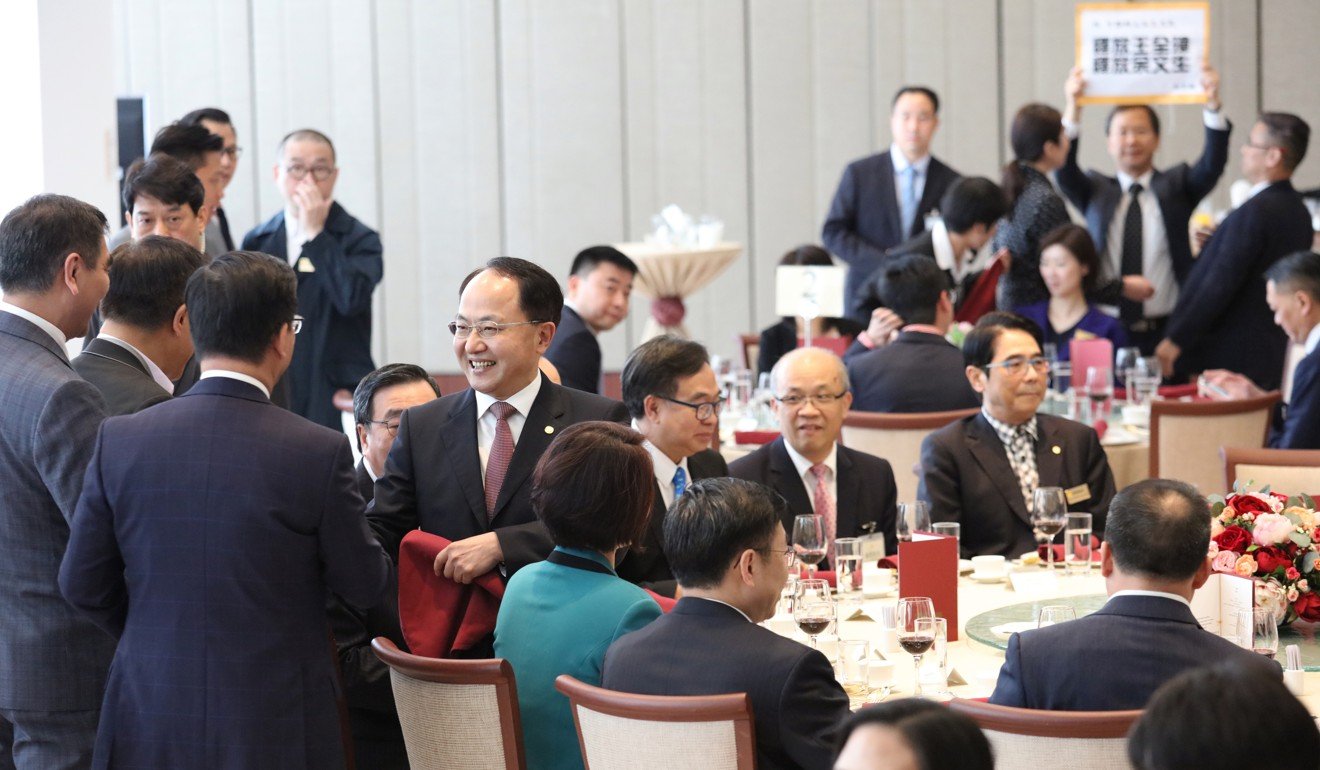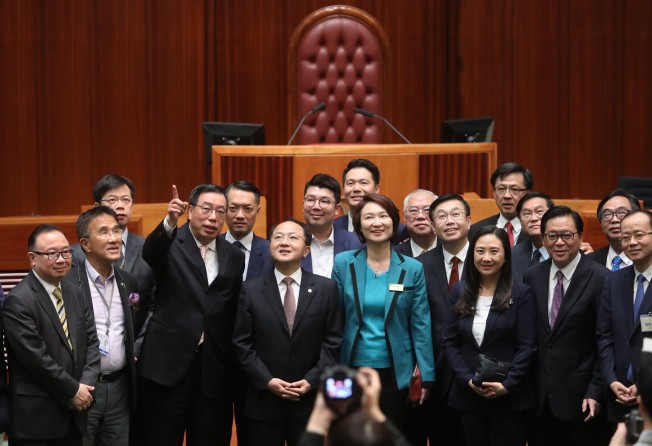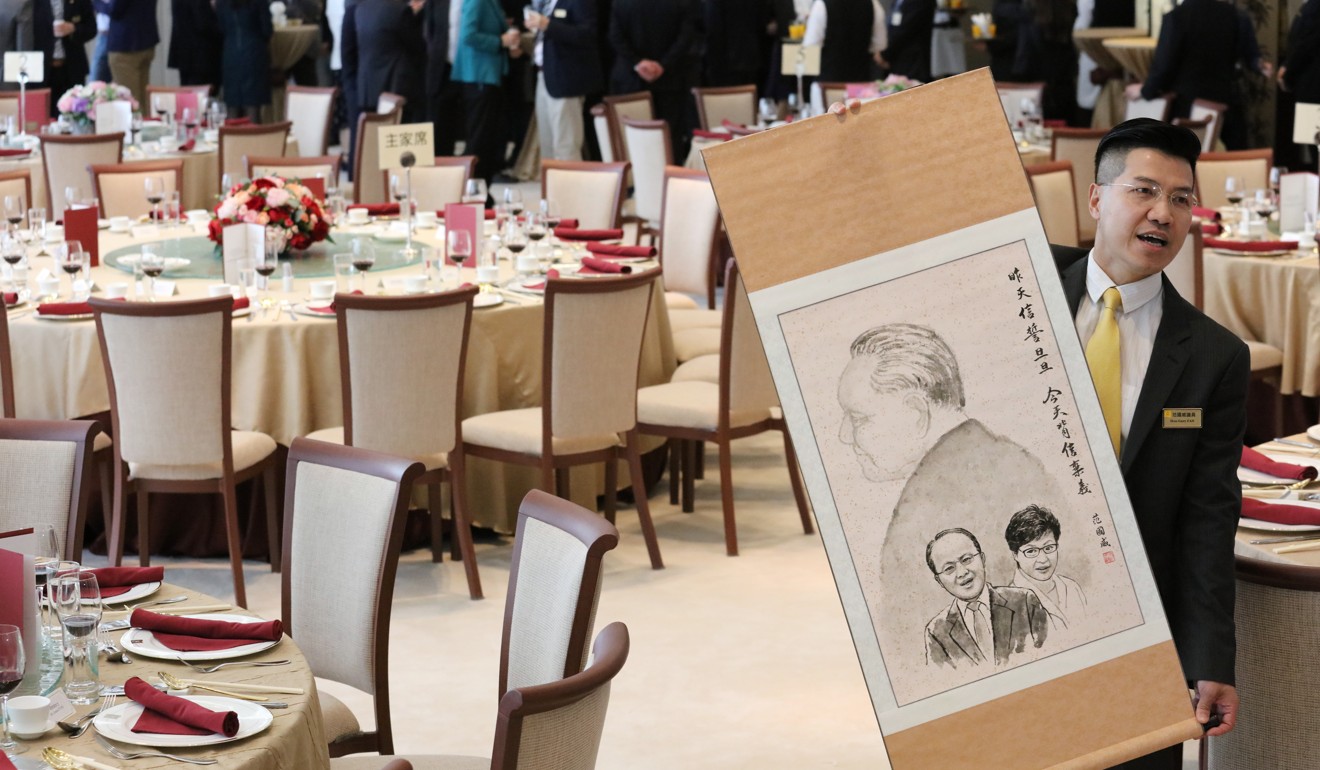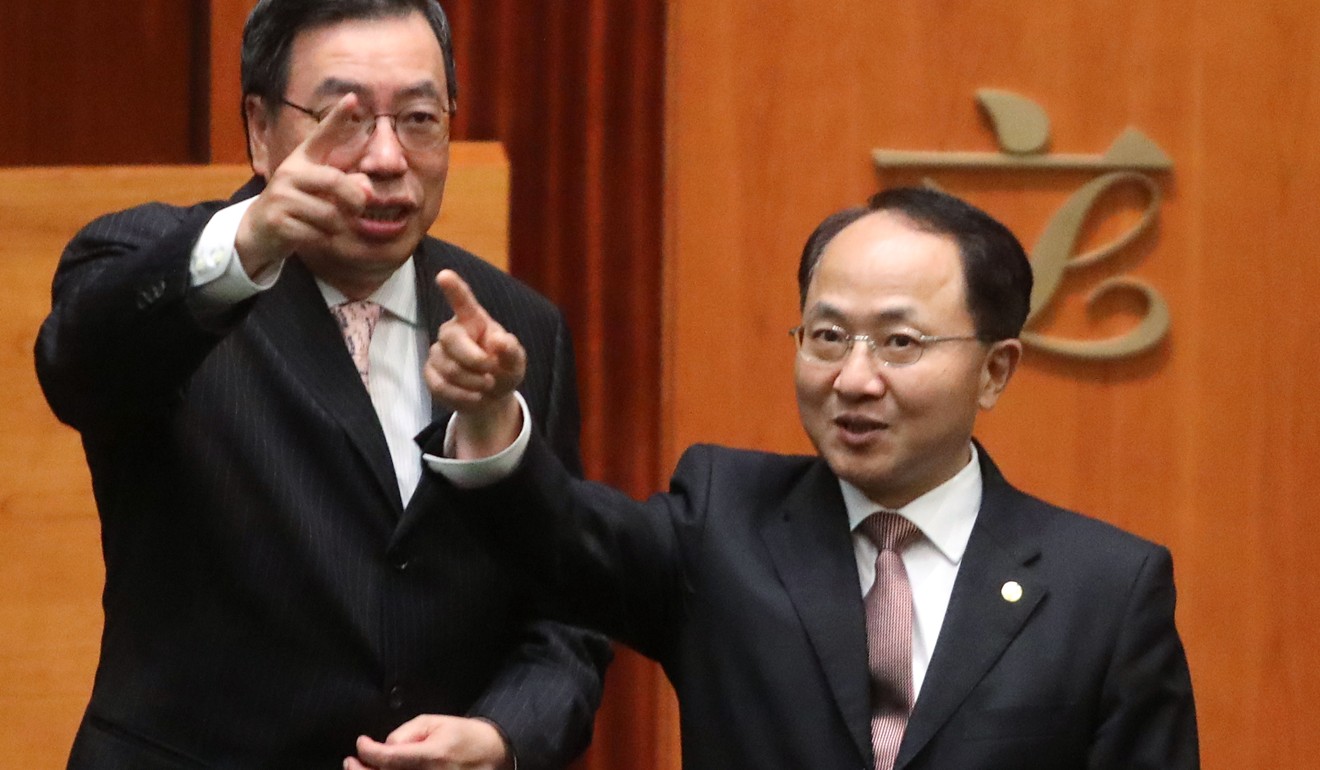
Beijing’s man in Hong Kong invites city democrats to his office (and they are very wary)
Top Beijing official urges lawmakers to embrace patriotism and love for city during first visit to legislature since taking office

Beijing’s top man in Hong Kong on Monday used his first visit to the Legislative Council since taking office to push for rational decision-making, “togetherness” and patriotism as core values of the chamber.
Wang Zhimin, head of the central government’s liaison office in the city, also extended an invitation to lawmakers to tour his premises in Western District, an offer pan-democrats viewed with suspicion even as they acknowledged that their fraught ties with Beijing had improved in recent months.
Speaking at Legco before a lunch with 51 lawmakers, including 10 pan-democrats, Wang said he believed all Hongkongers treasured stability and harmony.
“We earnestly hope and believe ... love of country and love of Hong Kong, democratic supervision, rational pragmatism and togetherness are the core values of the Hong Kong Legco,” he said, adding that he hoped the council would speed up its work for quicker implementation of policies.
He also weighed in on a simmering debate over whether those who called for an “end to one-party dictatorship” should be banned from running in elections. He called the slogan a “false proposition”, slamming those who used it and yet wanted to be lawmakers – and therefore part of the establishment.
“You want to join the establishment, yet you want to overthrow the same establishment. It does not sound like the political ethics [politicians] should have.”
Several lawmakers who had declined to attend the lunch, including Eddie Chu Hoi-dick, Raymond Chan Chi-chuen and Claudia Mo Man-ching, chanted “end one-party dictatorship” as Wang entered the banquet hall.

Wang said Legco served as a major force to safeguard the constitutional order, to facilitate and monitor the work of the government and to promote love of the country and love of Hong Kong.
Issuing his invitation, Wang, who took up his post last year, said: “We welcome all lawmaker friends from Central to gather again in Western to continue our friendship.”
It is rare for the liaison office – often criticised for encroaching on the city’s affairs and interfering in matters beyond its remit – to be invited to the chamber. The last visit was in 2013 by Zhang Xiaoming, the office’s previous head and now director of the Hong Kong and Macau Affairs Office in Beijing. Wang accompanied Zhang back then, when debate focused on political reform to achieve universal suffrage, with pan-democrats fiercely opposed to the vetting of candidates.

On Monday, the atmosphere was friendlier, some lawmakers present said, including several who had just returned from a weekend tour of the Greater Bay Area economic cooperation zone in mainland China.
Five democrats sat at the 19-seat head table, along with nine pro-establishment legislators. Still, leaders of the Democratic Party, the Civic Party, and the Professionals Guild handed Wang petitions opposing any launch of controversial national security legislation before universal suffrage, and asking for a reboot of political reform.
A minor scuffle erupted when localist Gary Fan Kwok-wai tried to present Wang with a drawing of him and Chief Executive Carrie Lam Cheng Yuet-ngor turning their backs on Deng Xiaoping. The artwork chastised the pair for violating the principle of “one country, two systems”, which the late paramount leader conceived for the city after its handover from British rule.
Asked by the media why the present was spurned, Wang slammed Fan for disrespecting Deng and hurting the feelings of the Chinese people.
Wang came bearing gifts of his own for lawmakers. He handed them two books: a copy of the Chinese constitution and the Basic Law, and a book on Deng’s analysis of Hong Kong’s problems.
While all sides welcomed the warmer atmosphere, pan-democrats interviewed later made plain that they faced a dilemma over whether to cooperate with the central government or to stand in firm opposition.
But all of them viewed Wang’s invitation as a poisoned chalice, with many remembering the last time pan-democrats visited the liaison office.

In 2010, the Democratic Party went to the office to discuss electoral reform. They achieved a breakthrough when Beijing adopted their recommendation of setting up five more directly elected seats – the so-called super seats. But they were viewed as turncoats by rivals on their own bloc, who said the trade was done in a “black-box” or opaque manner.
We just want to set the relationship back to normal ... we would not give up any opportunities to proactively submit our views [to Beijing]
On Monday, the pan-democrats said that while the lunch was a step forward in building normal working relations with Beijing, it was too early to decide if they would visit the liaison office.
“There is no need to have many courtesy meetings ... even though we would be glad to discuss practical issues,” Civic Party lawmaker Dennis Kwok said.
In a similar vein, Democratic Party chairman Wu Chi-wai said that a better starting point would be an exchange of views towards a specific policy rather than a casual office lunch.
“We just want to set the relationship back to normal ... we would not give up any opportunities to proactively submit our views [to Beijing],” Charles Mok, convenor of the pro-democracy camp, said, brushing off a question on whether they were “walking too closely” with the liaison office.